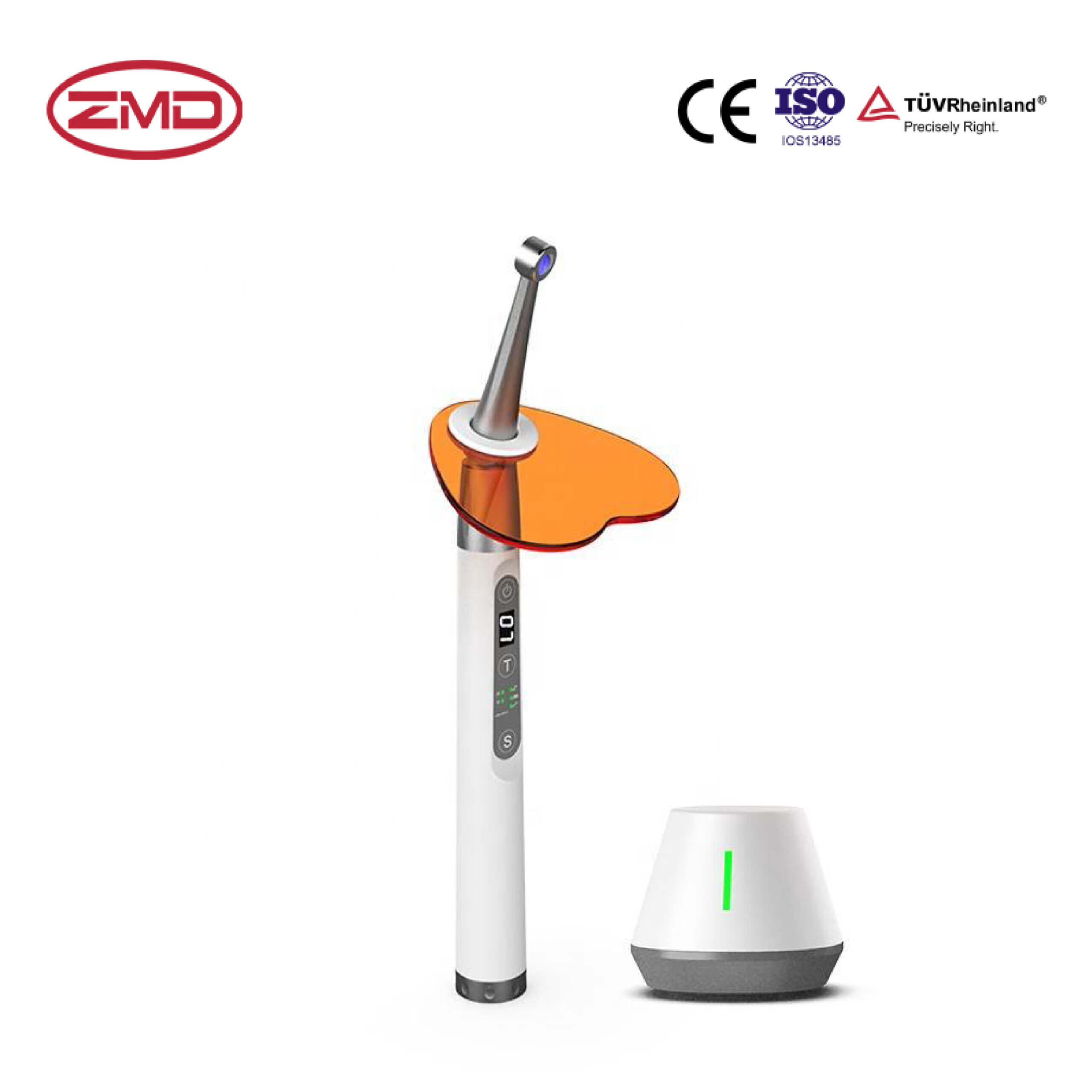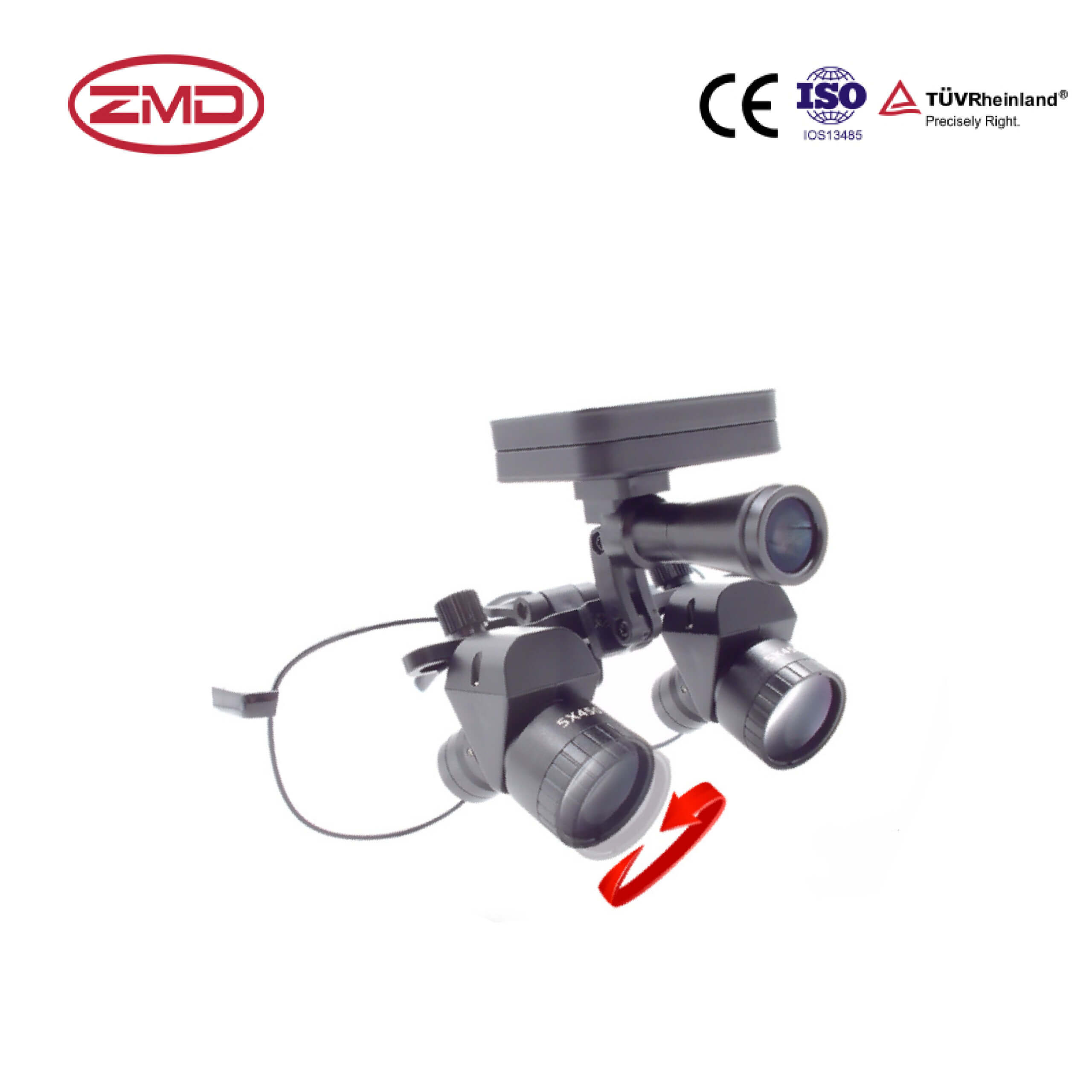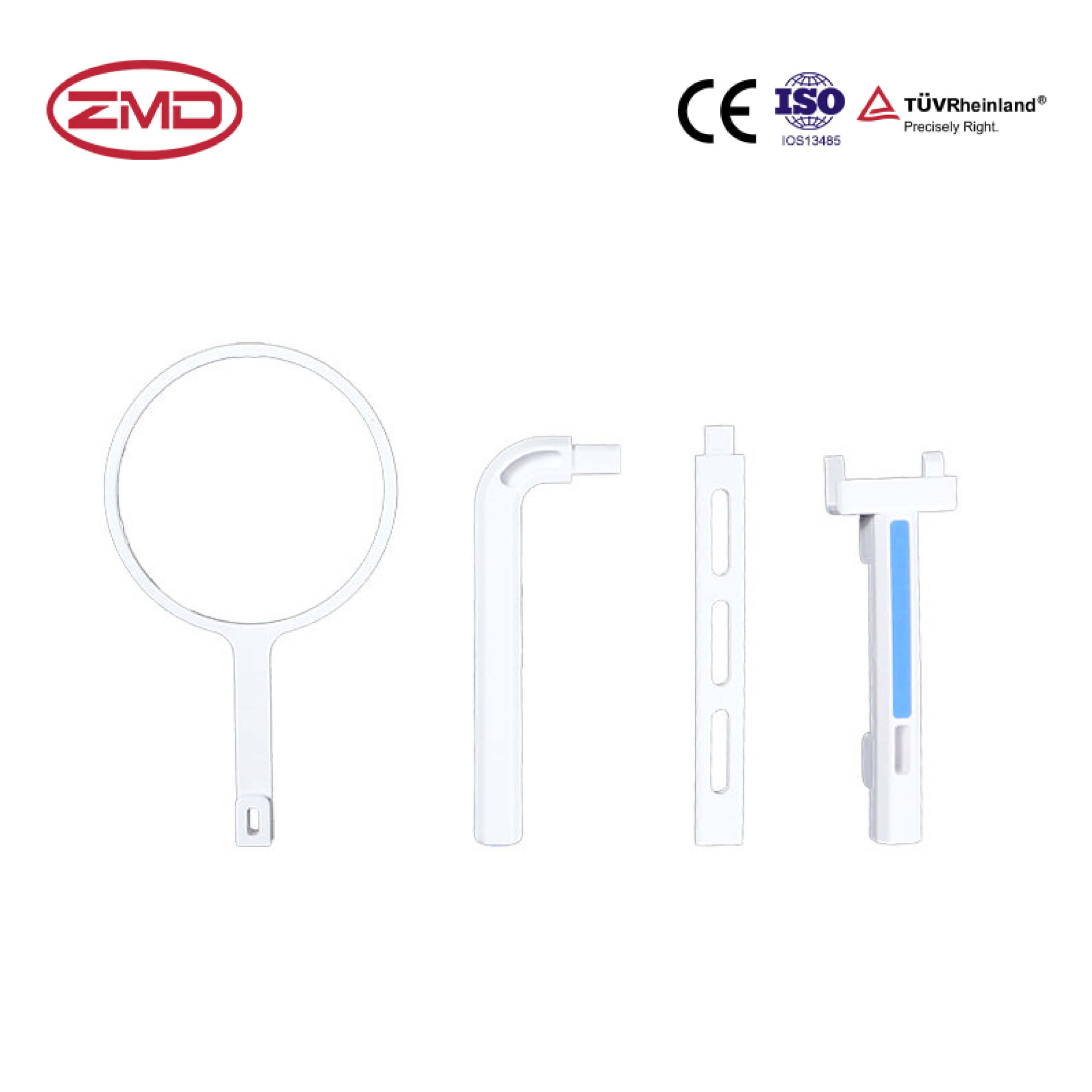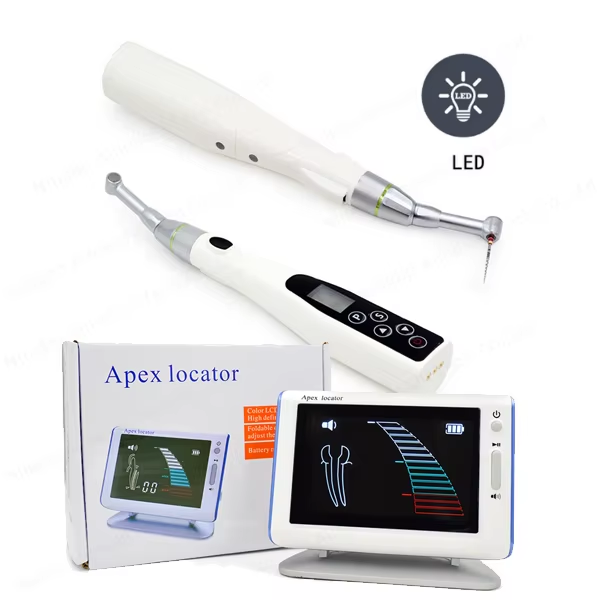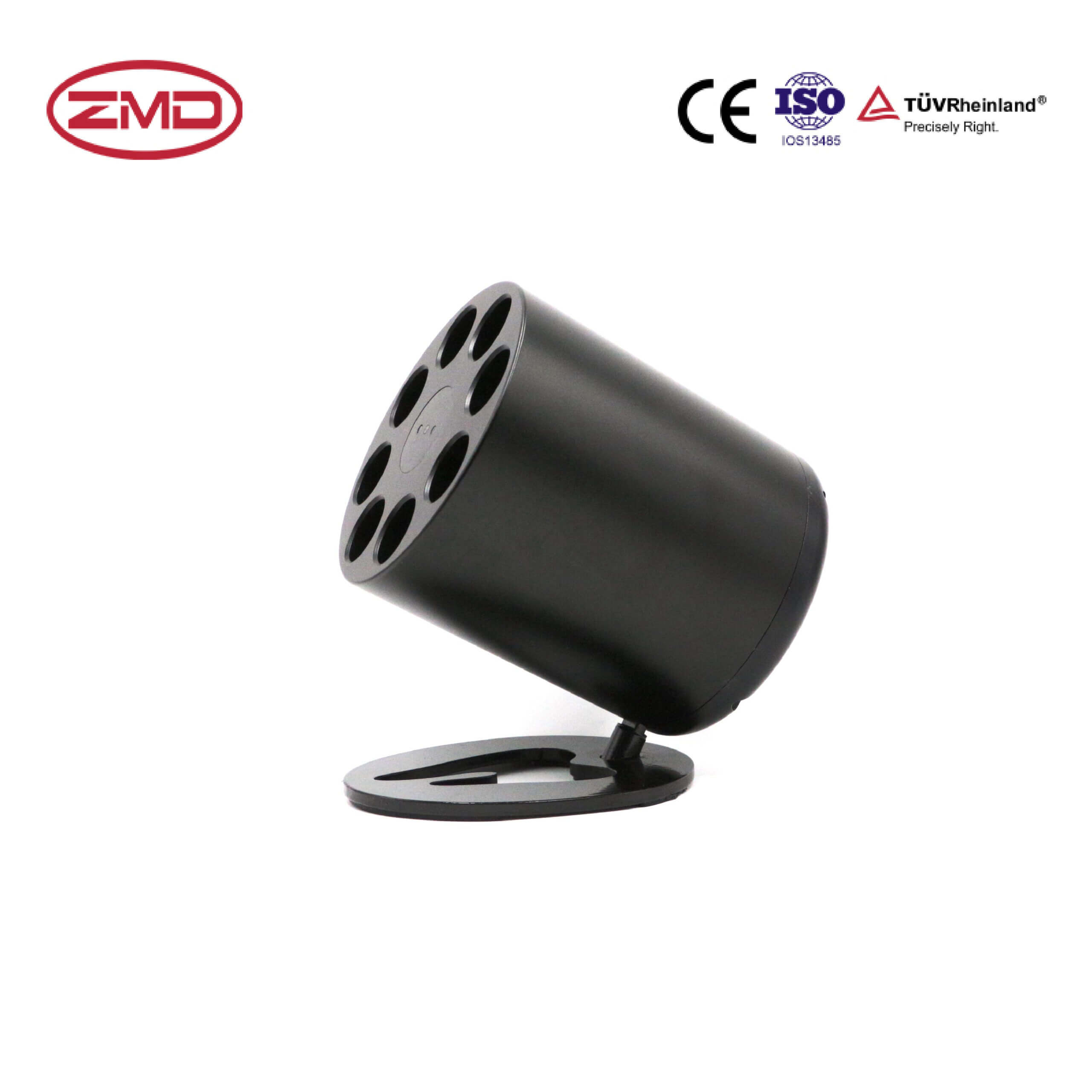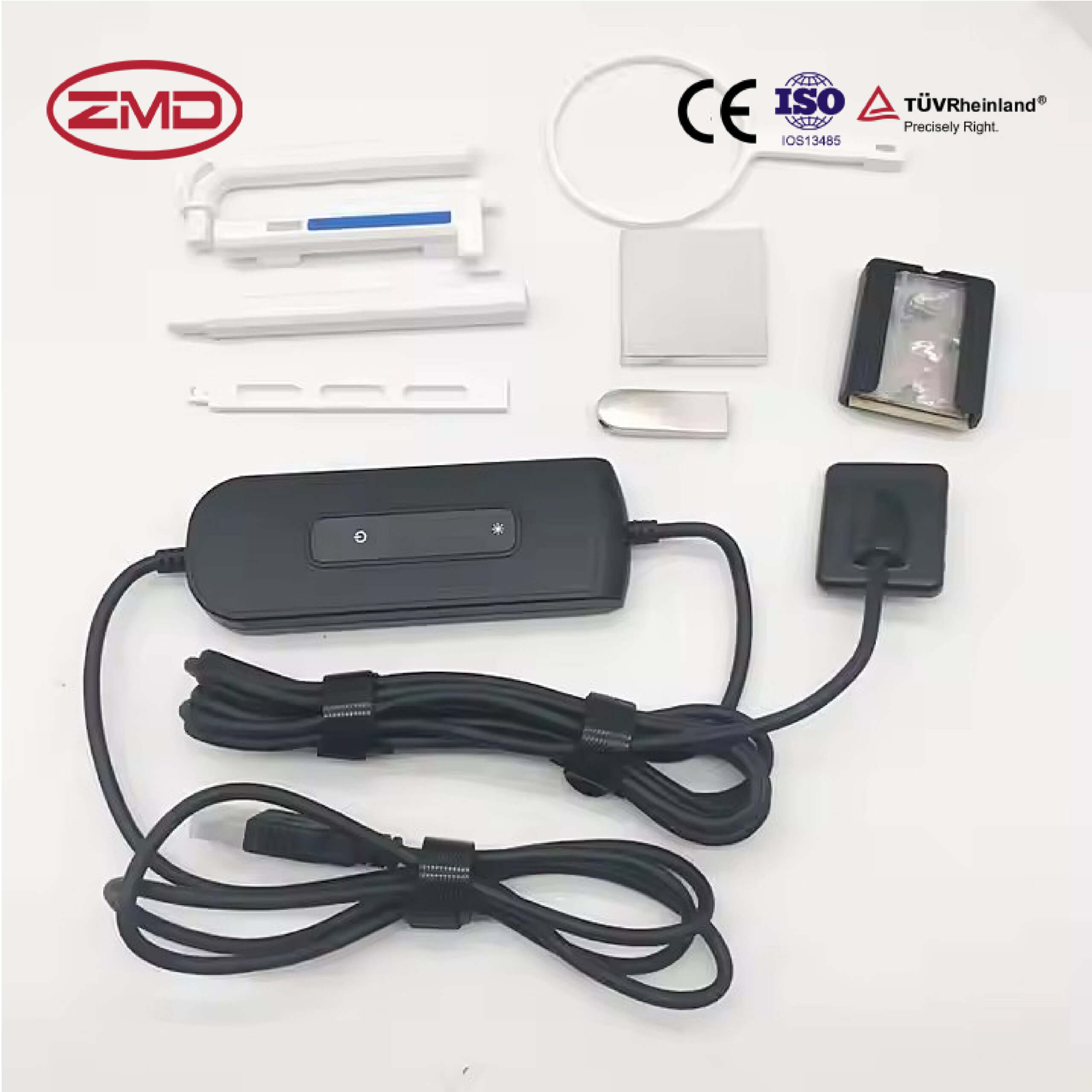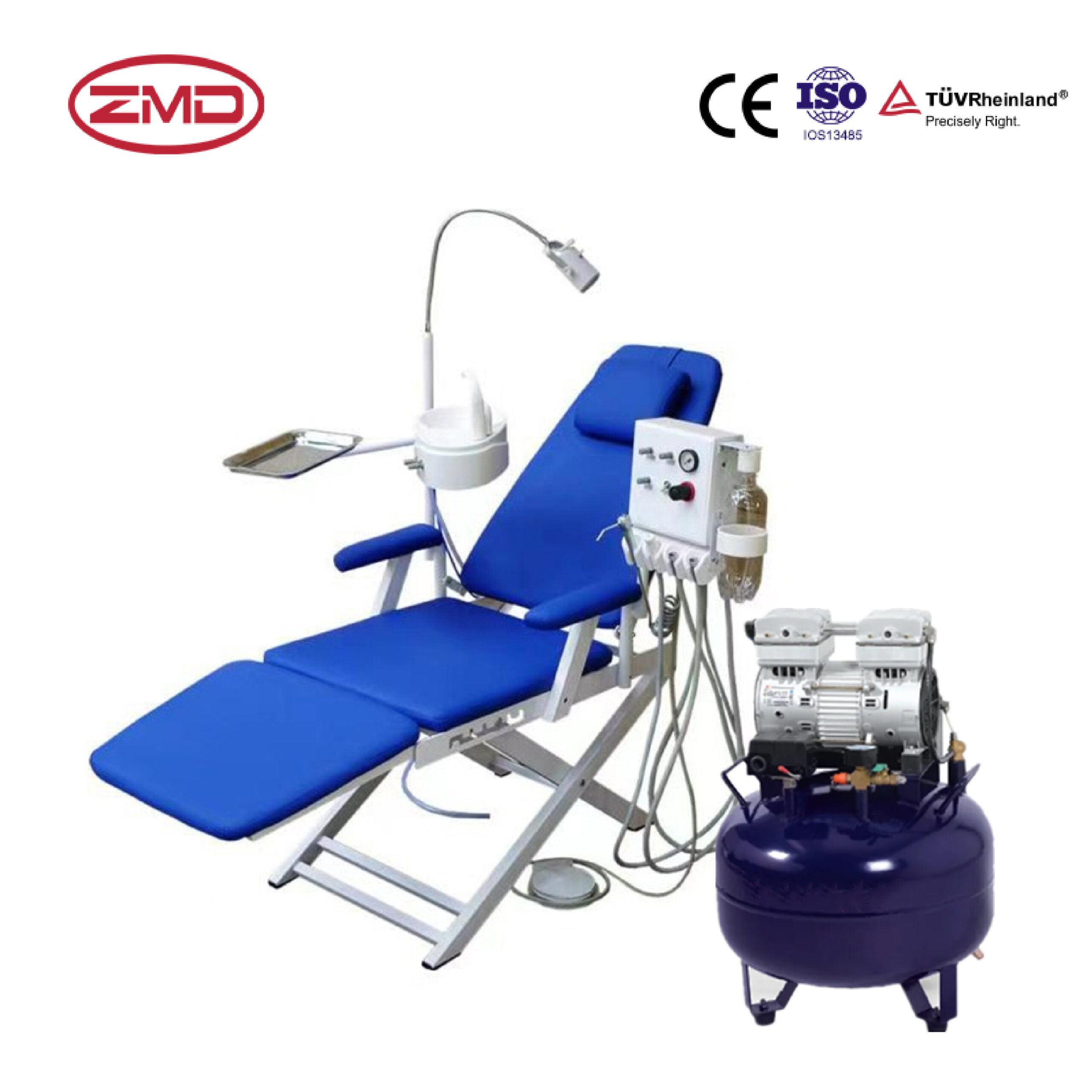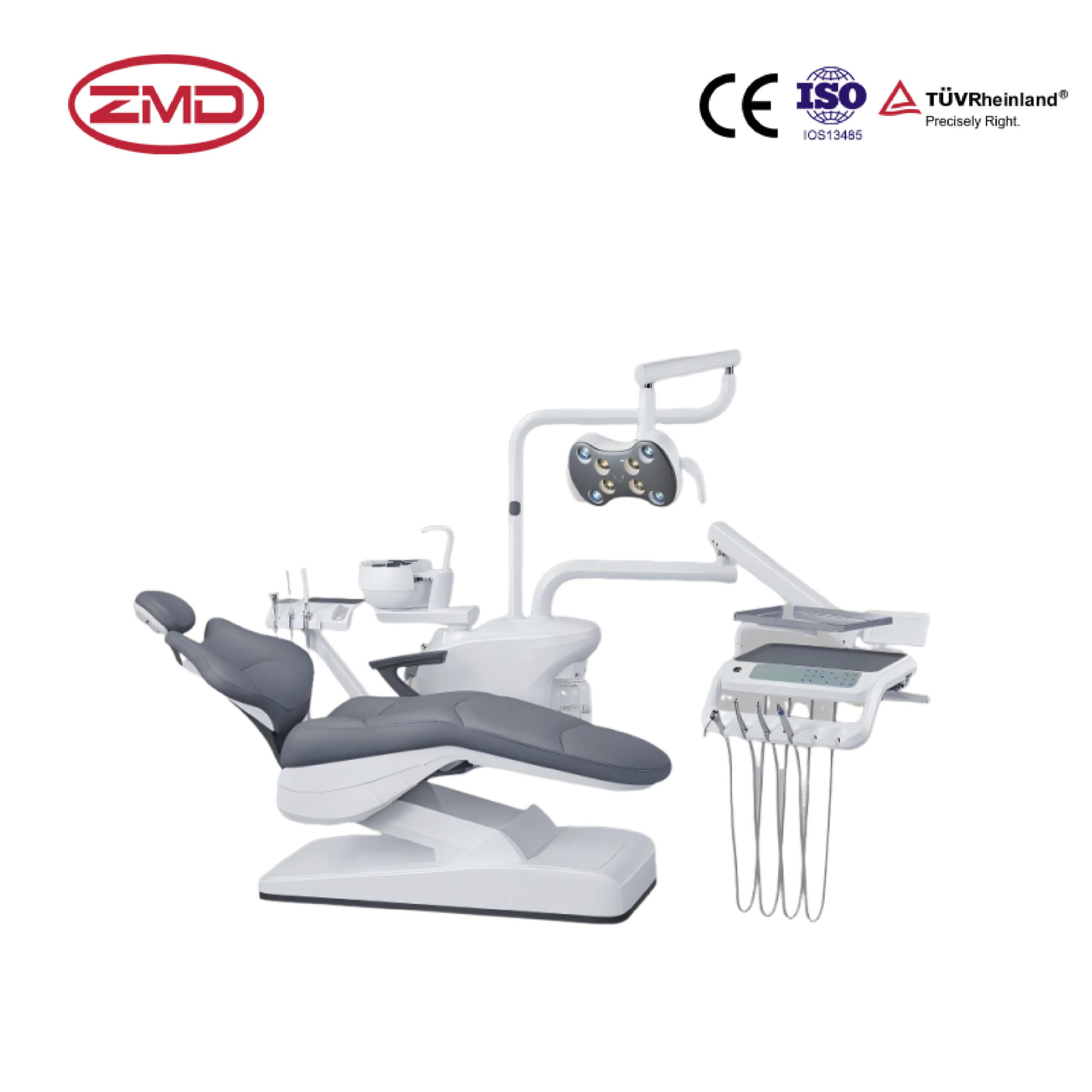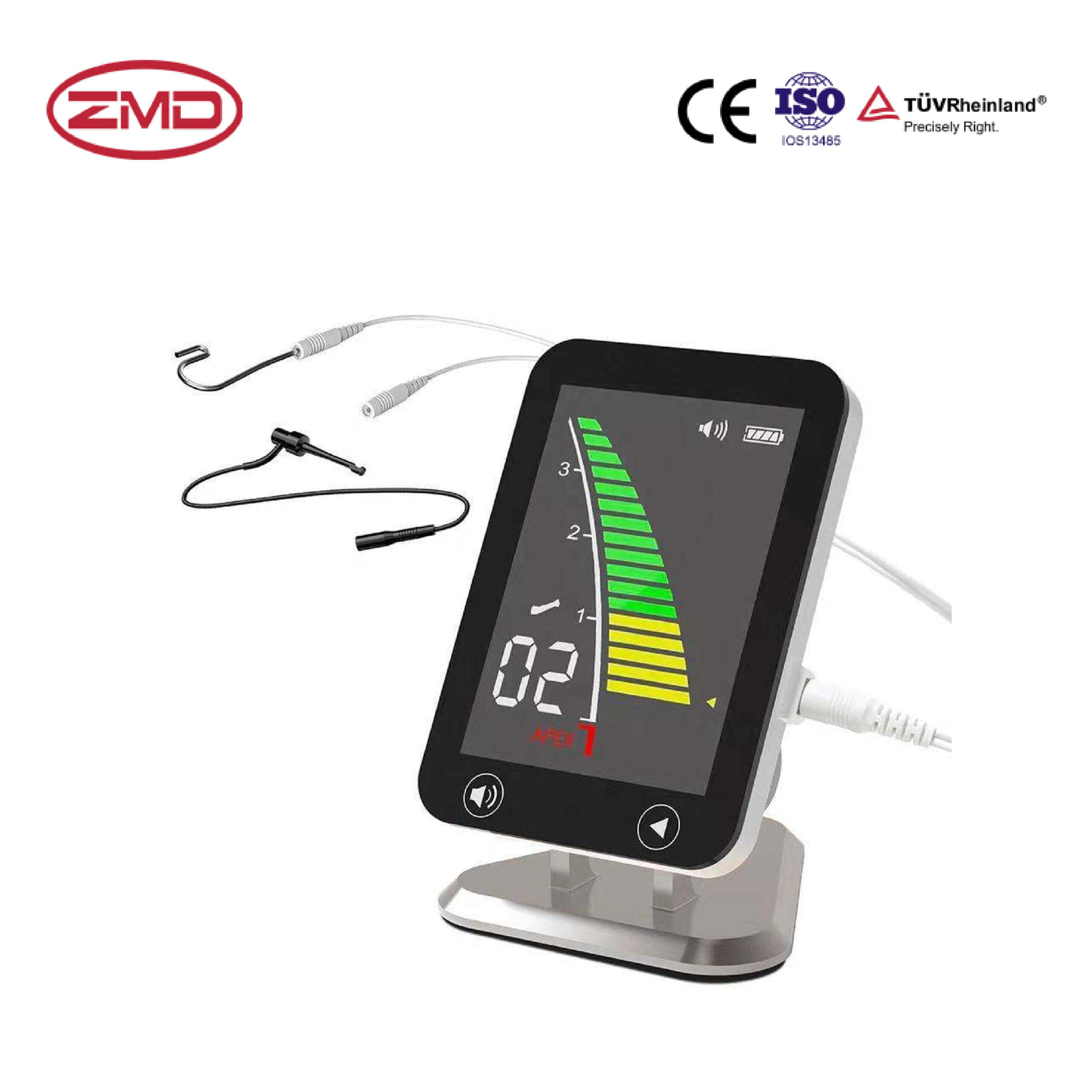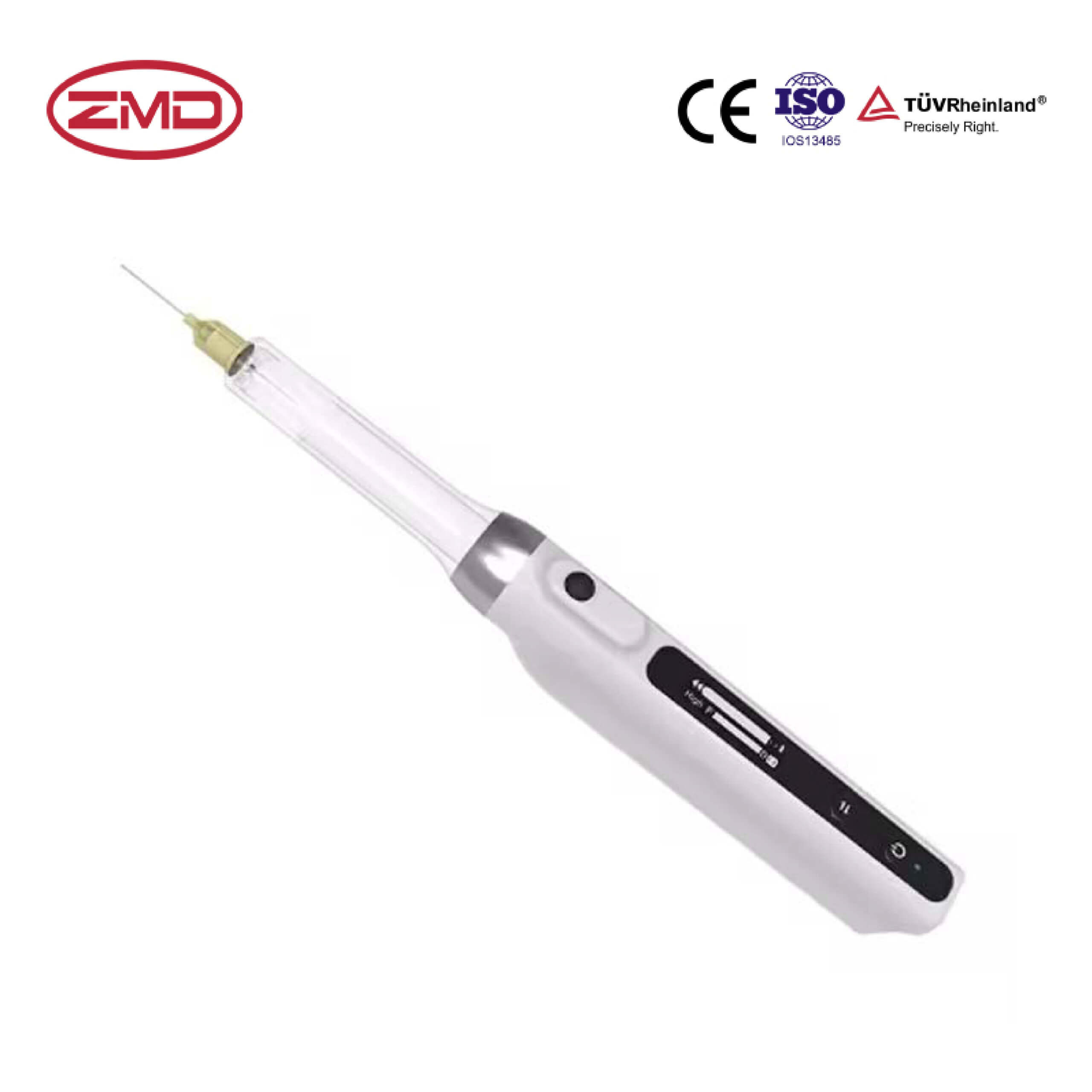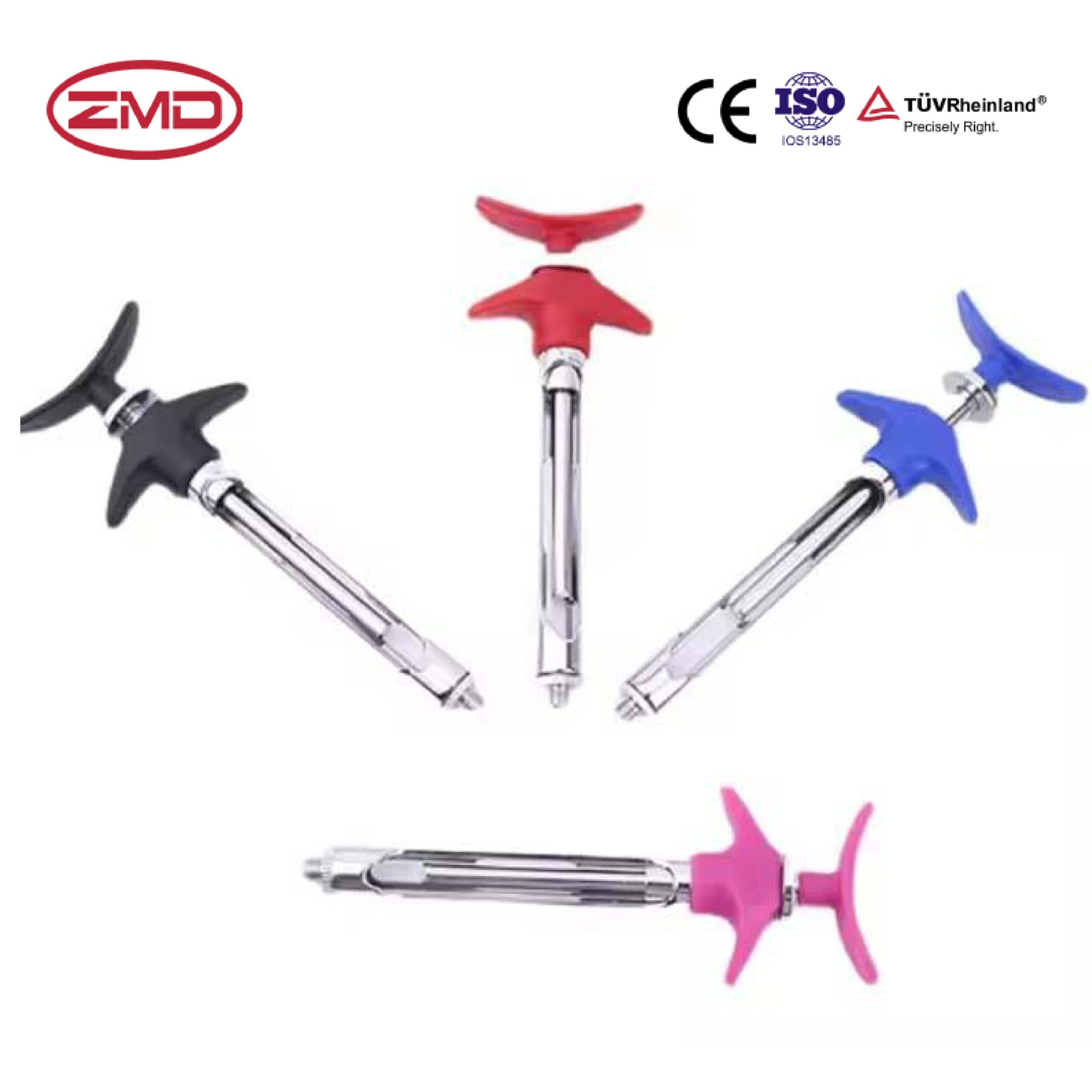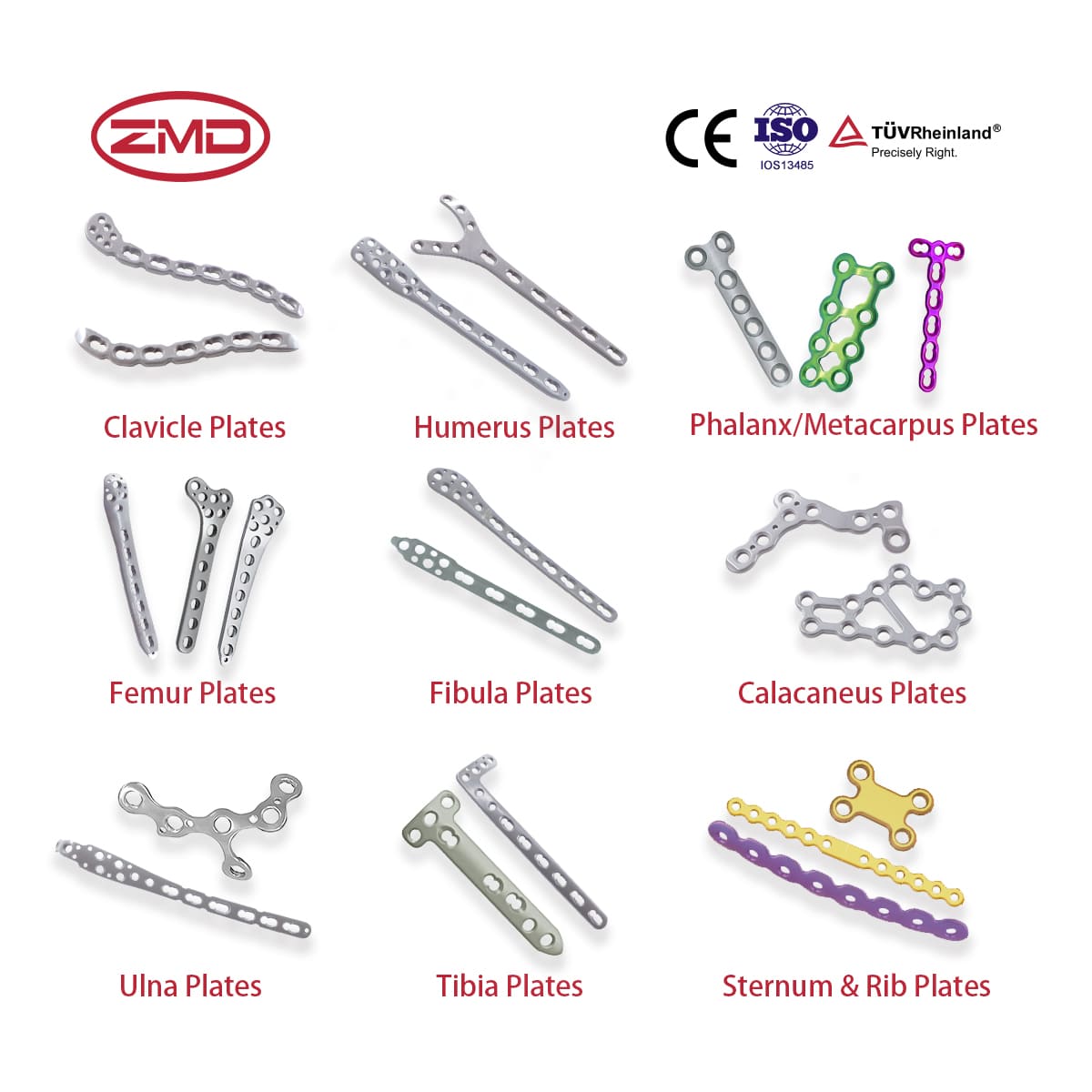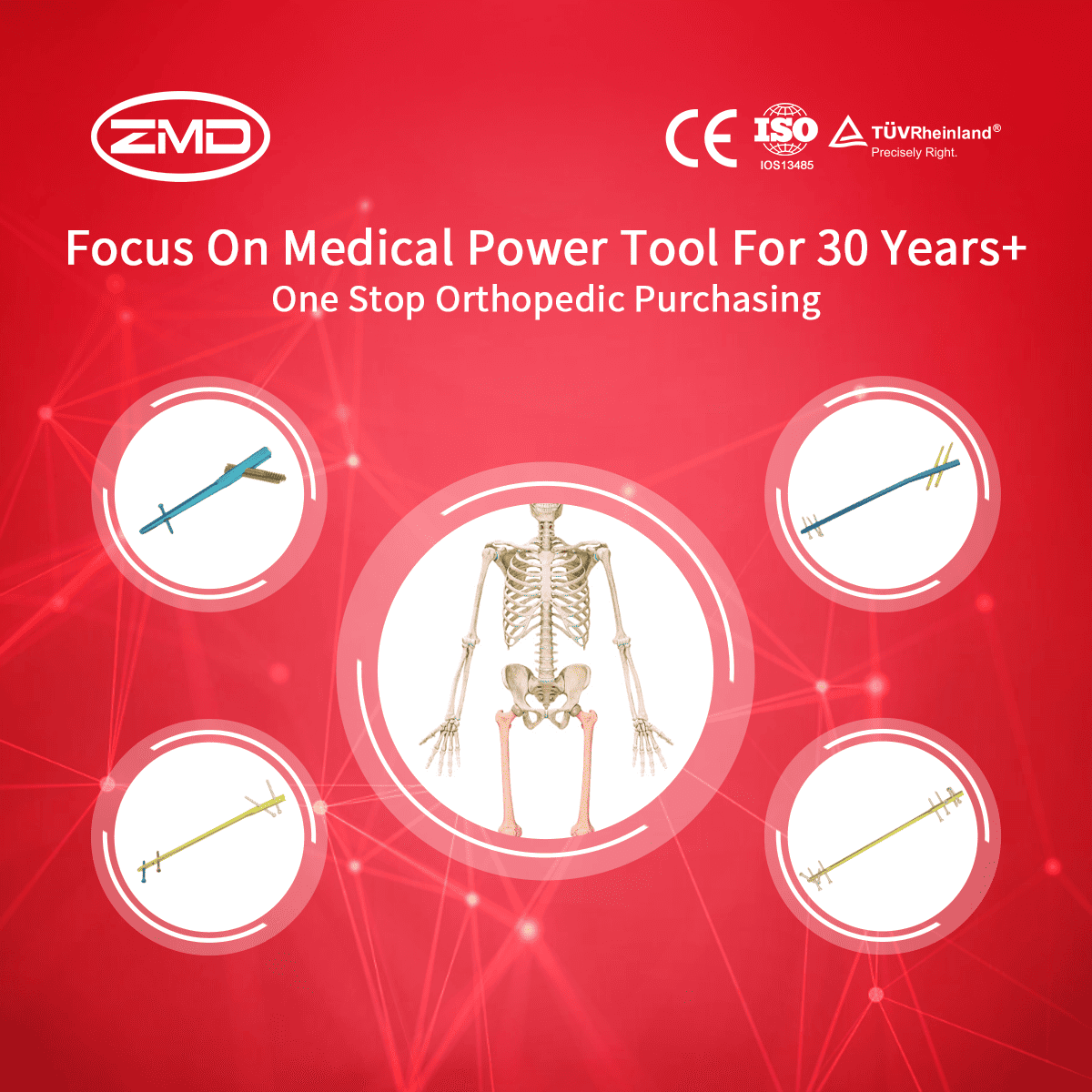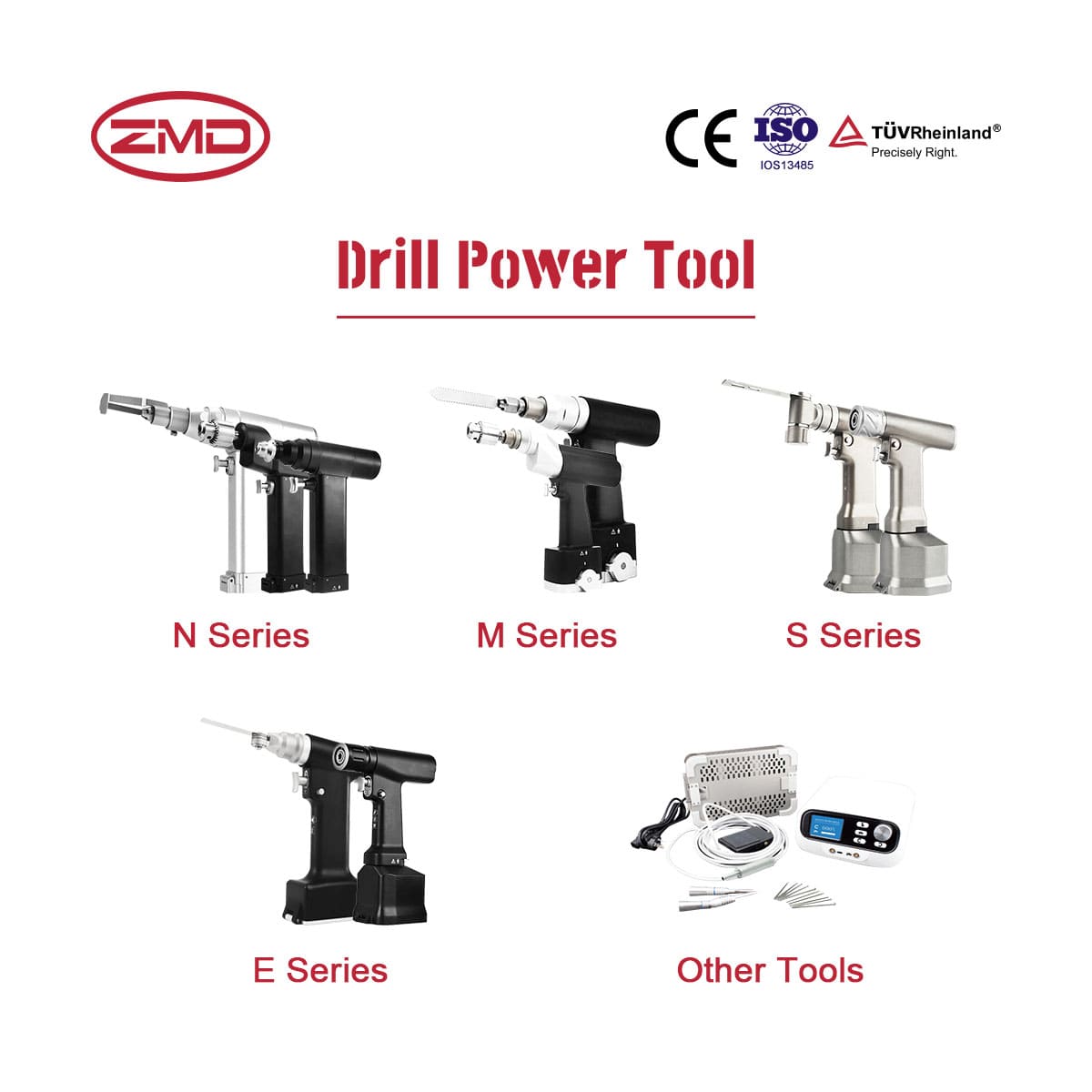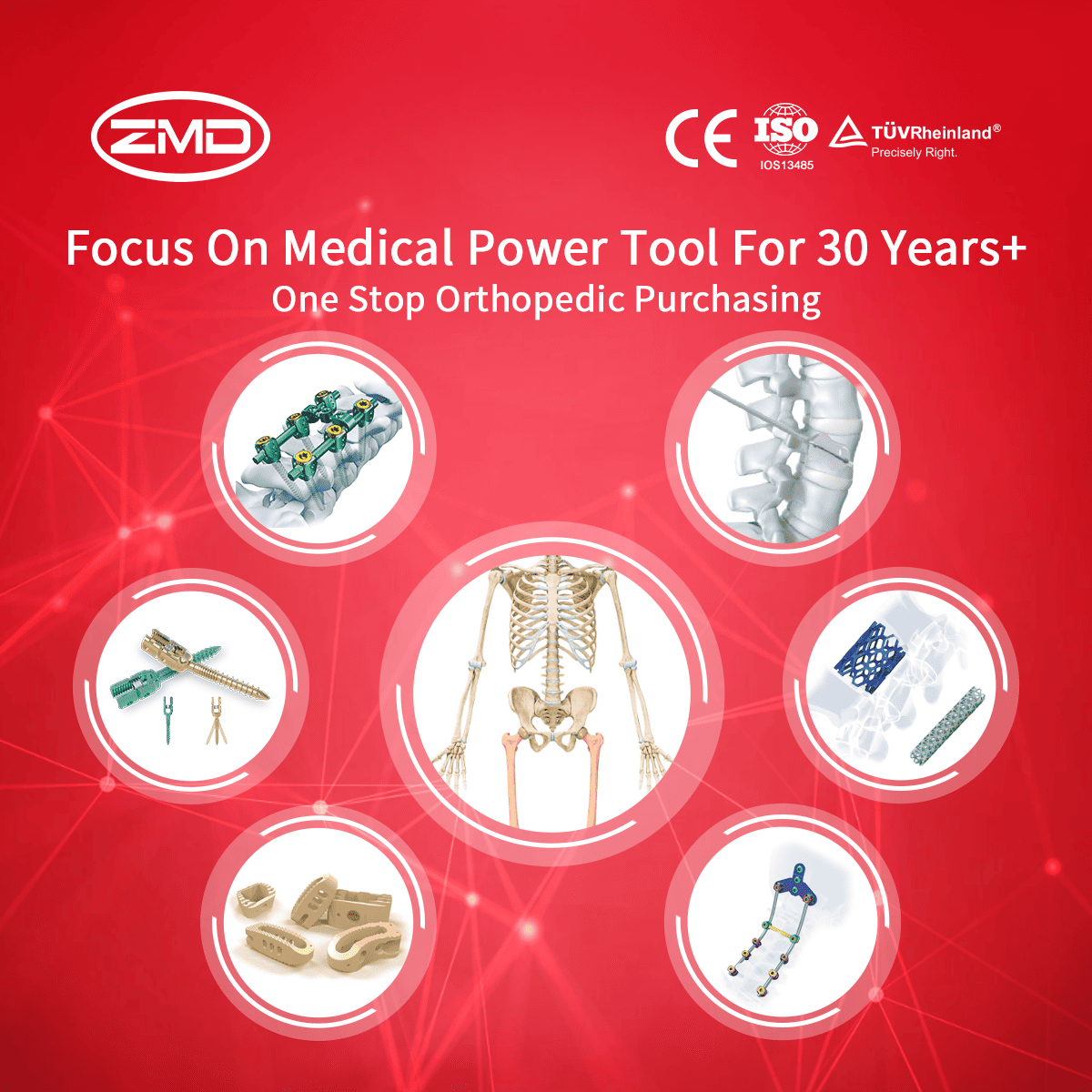Dental
ZMD
Orthopedic Products
Haven't been able to locate the product you're searching for yet?
If you're interested in more orthopaedic implant products, feel free to get in touch with our ZMD consultants.
What are Dental Implants?
Dental implants are advanced, biocompatible devices engineered to replace missing teeth at the root level. Made from materials like titanium (known for its superior biocompatibility, strength, and ability to integrate with jawbone via osseointegration) or zirconia (a metal-free, aesthetic alternative), they act as artificial tooth roots. They provide a stable base for crowns, bridges, or dentures, preserving jawbone health, preventing adjacent teeth from shifting, and delivering a long-lasting, natural-looking solution that replicates the function and appearance of natural teeth.
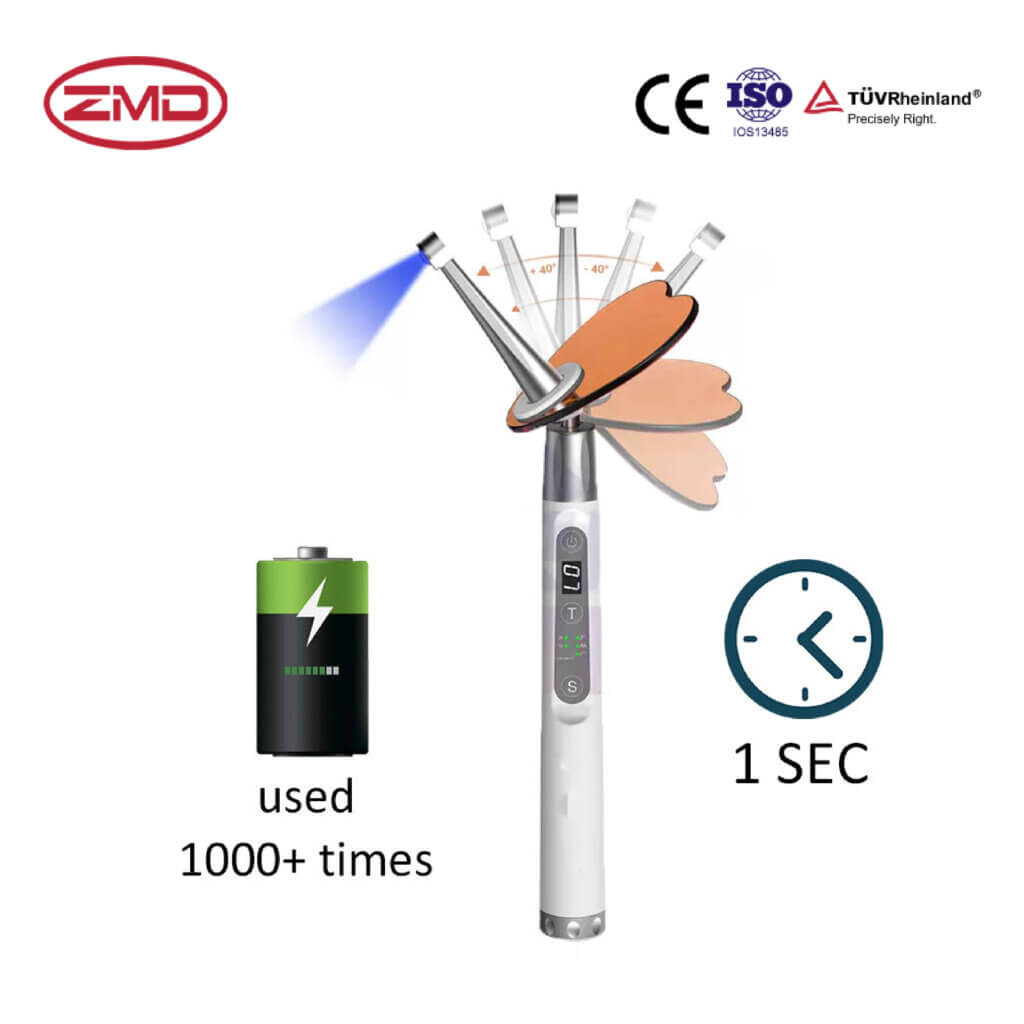

When Are Dental Implants Needed?
- Single Tooth Loss: An implant-supported crown restores function and aesthetics without modifying neighboring teeth (unlike bridges).
- Multiple Teeth Loss: Implant-supported bridges/dentures offer unmatched stability, eliminating slipping or dietary restrictions of traditional dentures.
- Full Arch Tooth Loss: Solutions like All-on-4® provide fixed, permanent replacements for entire arches, restoring full chewing power.
- Jawbone Preservation: Implants stimulate the jawbone, preventing bone loss and maintaining facial structure after tooth extraction.
Why use dental medicine products include:
1. Dental Implants Q&A
- Q: What are dental implants?A: Dental implants are biocompatible devices (usually titanium) that replace missing tooth roots. They integrate with the jawbone, supporting crowns, bridges, or dentures for a natural, long-lasting tooth replacement.
- Q: How long do dental implants last?A: With proper care, dental implants can last a lifetime. They’re designed for durability, making them a permanent solution for tooth loss.
- Q: Is getting a dental implant painful?A: The procedure is done under local anesthesia, so patients feel little to no pain during surgery. Mild discomfort post-procedure is manageable with medication, and most patients return to normal activities quickly.
2. Orthodontics (Teeth Straightening) Q&A
- Q: What are the most popular teeth straightening options?A: Invisalign (clear aligners), traditional metal braces, ceramic braces, and lingual braces (placed behind teeth) are popular. The choice depends on your case, lifestyle, and budget.
- Q: At what age can you get orthodontic treatment?A: Orthodontic treatment works for all ages. Children can start as early as 7 for interceptive care, while teens and adults often use Invisalign or braces for alignment.
- Q: How long does orthodontic treatment take?A: It varies—typically 6–24 months. Factors like the severity of misalignment and the type of appliance (e.g., Invisalign vs. braces) affect duration.
3. Teeth Whitening Q&A
- Q: What’s the most effective teeth whitening method?A: In-office professional whitening (e.g., laser or LED whitening) delivers the fastest results. At-home kits with custom trays (prescribed by a dentist) offer gradual, long-lasting whitening.
- Q: How long do teeth whitening results last?A: Results can last 6 months to 3 years, depending on diet (avoid staining foods/drinks like coffee, red wine) and oral hygiene habits. Touch-ups may be needed over time.
- Q: Is teeth whitening safe?A: When done under dental supervision, teeth whitening is safe. It may cause temporary sensitivity, but this subsides. Avoid over-the-counter products without dental guidance, as they can damage enamel.
4. Root Canal Therapy Q&A
- Q: What is a root canal?A: A root canal treats infected or damaged dental pulp (the soft tissue inside teeth). The dentist removes the pulp, cleans the root canal, and seals it to save the tooth from extraction.
- Q: Is a root canal painful?A: Modern techniques and anesthesia make root canals no more painful than a routine filling. Patients often report relief from pain once the infected pulp is removed.
- Q: Do I need a crown after a root canal?A: Usually, yes. A root canal weakens the tooth, so a crown protects it from breaking and restores its strength and function.
5. Pediatric Dentistry Q&A
- Q: When should a child first visit the dentist?A: The American Academy of Pediatric Dentistry recommends the first visit by age 1, or when the first tooth erupts—whichever comes first. Early visits help prevent cavities and establish good oral habits.
- Q: How can I prevent cavities in my child’s teeth?A: Encourage brushing twice daily with fluoride toothpaste, limit sugary snacks/drinks, schedule regular dental checkups, and consider dental sealants for permanent molars.
- Q: Are baby teeth important?A: Yes! Baby teeth help with chewing, speech development, and guide permanent teeth into place. Treating cavities in baby teeth prevents pain and infection.
6. Digital Dentistry Q&A
- Q: What is digital dentistry?A: Digital dentistry uses technologies like 3D scanners, CAD/CAM systems, and digital X-rays to improve diagnosis, treatment planning, and restorative work (e.g., crowns, bridges) with precision and efficiency.
- Q: How does a digital dental impression work?A: A digital scanner captures 3D images of teeth and gums, replacing traditional putty impressions. It’s faster, more comfortable, and produces highly accurate models for restorations.
- Q: Are digital dental X-rays safe?A: Yes. Digital X-rays emit up to 90% less radiation than traditional film X-rays, making them safer for patients of all ages.
Blog
International Women’s Day: Salute to the “She – Power” at ZMD
International Women’s Day: Salute to the “She – Power” at ZMD Amid the trends of “Intelligent Medical Devices” and “Minimally Invasive Medical Technologies”, ZMD thrives
Discover Innovation with Sunan Medical at AAOS
Discover Innovation with Sunan Medical at AAOS The American Academy of Orthopaedic Surgeons (AAOS) Annual Meeting is the premier event for orthopedic professionals worldwide, offering
Visit Us at Expomed Eurasia 2025: Discover Sunan Medical’s Innovations
Visit Us at Expomed Eurasia 2025: Discover Sunan Medical’s Innovations The 32nd Expomed Eurasia, taking place from April 24-26, 2025, at the Tüyap Exhibition and

